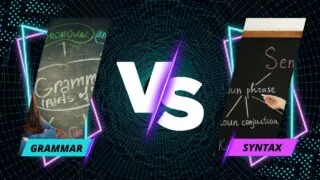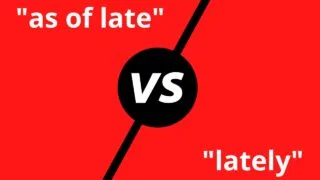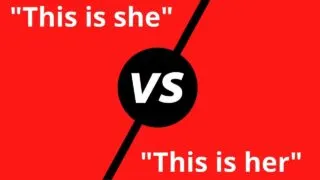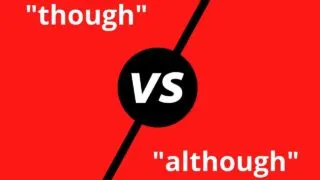Learning when and how to use punctuation marks does not sound enticing, let alone knowing when to place a few of them together in place together. Today, we’ll understand in detail what brackets are and when to use a comma before them in sentences. Let’s begin with an overview. Correctly using a comma before …
Search results for: whereas
A proficient speaker, more often than not, is also an effective writer who varies the structures of his sentences to add interest and tone to his piece. He can do this if he possesses a good grasp and sound understanding of grammar and syntax – the most important tools of a writer or speaker. Many …
The English language can be an abundant source of grammar pet peeves that some users thought they were correct all along. These grammar bits and pieces can be mind-boggling yet enslaving at times. So, we’ve listed the world’s most favorite grammar irritants just for you. Thumbs up, thumbs up! That’s what we take this time …
A number of people tend to get confused about when to use “as of late” and “lately,” leading them to think that these two phrases can be used interchangeably. We can surely avoid these errors if we know the right way to use the expressions “lately” and “as of late” as well as how to …
“What are the different abbreviations for “without,” and when exactly do we use them?” – if these questions have been sneaking up on you, you’ve certainly come to the right page. Thumbs up, thumbs up. Today, we’ll try to help you make jotting down notes more manageable and faster by looking into the different abbreviations …
People send and receive emails all the time, which means that email writing has become a staple skill in the business world. Upon receiving emails, we get prompted to respond by acknowledging email receipt – a mundane yet crucial business etiquette. In fact, the expression “well received” is one of the most commonly used responses …
The way we write emails in business correspondence determines how well we can convey our thoughts in formal settings. Even more so, how we communicate, whether effectively or not, helps in painting and shaping our so-called “identities.” “Thank you very much for your email” is probably one of the most routinary messages we see when …
People use a lot of expressions all the time, but they get confused about whether they are saying things the right way or not. Two of the most grammatically-baffling phrases to date are “this is she” and “this is her” – wherein both may or may not sound right to the native ears. If you’re …
To say that “English is confusing” is an understatement as there are so many expressions out there that could support this idea. For instance, “though” is not only two letters short of “although.” These words also substantially differ in meaning, function, and usage in real life. Today’s post aims to lessen, if not get rid …









